There are 17 statewide propositions on my ballot, along with several local ones in LA County. If my job was selling commercials, I’d be thrilled! Some of these propositions can be big business. The opposition to Prop 61 has so much money that they bought national TV ads during Dodgers-Cubs playoff games. I almost feel like I have to apologize to my baseball watching friends in other states. The last thing we’d want to do is export a ballot booklet that is over 200 pages long once you include the text of all the propositions!
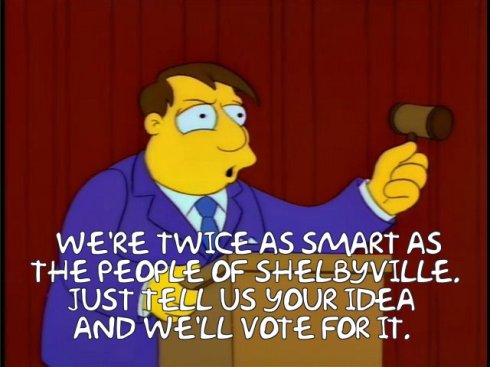
After spending some time reporting on state government a decade ago, I tend to vote against ballot propositions. One of the major ongoing stories I covered was California’s massive budget shortfall of 2003. Once Californians dramatically lowered and capped property taxes with Proposition 13 back in the 1970s, the state had to turn to income and sales taxes for its revenue. The tax base grew more volatile, and the state had little cash in reserve for a downturn. Prop 13 also meant that it took a 2/3 majority to pass a budget with any increased taxes. State government shut down for months while the two parties refused to compromise.
I doubt any of the voters from the 1970s could foresee how Proposition 13 would create more problems down the road and make it harder for the state to fix the new problems that emerge. The ballot proposition system is full of unintended consequences. Three strikes led to massive spending on prisons, then overcrowding, and eventually a successful lawsuit claiming cruel and unusual punishment for the overcrowding. Because of the way propositions are written, the only way to un-do the damage is with another ballot proposition. So we have Prop 58, on bilingual education, which mainly repeals a ban on bilingual education from the 1990s.
With that in mind, I thought I’d go ahead and give a quick summary of each ballot proposition. Along with explaining what the ballot proposition does, I will try to explain why the proposition exists, what may be lurking in the fine print, who backs the ballot prop financially, and whether it is partisan. To start off each proposition, I will turn to the wonderful Frinkiac for the most appropriate Simpsons quote:
Prop 51: School Bonds
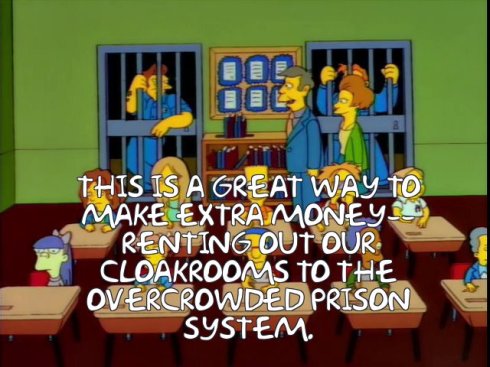
What it does: Authorizes $9 billion in bonds for school construction. $7 billion goes to K-12 schools, $2 billion for community colleges. Estimated cost of $17.6 billion to eventually pay off the principal and interest over 35 years.
Why is this a thing? Construction is expensive and hard to finance by just saving enough local tax dollars in a piggy bank. Sooner or later we have to build and repair schools…unless we want to solve this like the people of Springfield did.
What’s in the fine print? Very little. The only catch (the state has to pay bonds back with interest) is in the basic description of the bill.
Is this partisan? Not really. Both the California Democratic and Republican Party organizations endorse a yes vote.
Who are the financial backers? Construction companies on the yes side. No campaign contributions on the no side.
Are there shady ads? Nothing on TV.
My take: This is how school construction and repair gets done in California.
Prop 52: Medi-Cal Hospital Fee Program
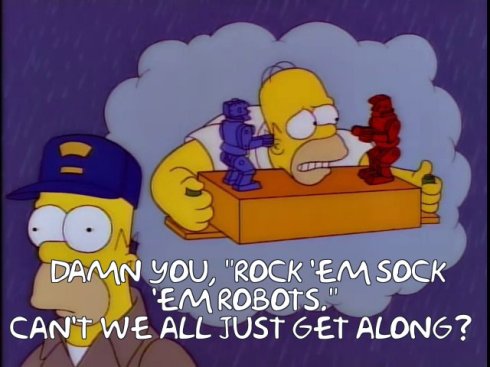
What it does: In 2009, private hospitals started paying a tax to help fund Medi-cal. This program is scheduled to end in 2018. A yes vote makes the current program permanent.
Why is this a thing? The only way to keep the status quo is by passing another ballot initiative. Without this fee, the state would have to cut back on health care for low income patients or find some other source of revenue.
What’s in the fine print? Very little if people vote yes, since it maintains the status quo.
Is this partisan? Not really. Both the California Democratic and Republican Party organizations endorse a yes vote.
Who are the financial backers? Management of various hospitals and health care providers on the yes side. Healthcare workers union on the no side.
Are there shady ads? Nothing on TV.
My take: There is some concern that without private hospitals paying in, public hospitals will face an even greater strain to covered the poor and uninsured. This was a huge problem in Los Angeles over a decade ago – the uninsured went to public emergency rooms who were obligated to offer care. ER services are more expensive. Having private hospitals pay in to Medi-Cal is one of the better public policy solutions the state has.
Prop 53: Revenue Bonds
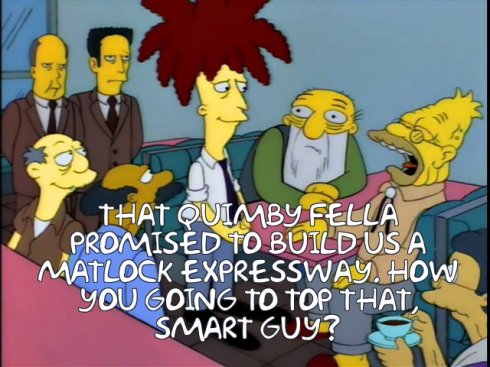
What it does: Require most state bonds of $2 billion or greater to go on the ballot for a public vote.
Why is this a thing? A rich Republican thinks every large public works project is like the “Matlock Expressway,” so he wants to slow down major government spending on infrastructure.
What’s in the fine print? Not as much as there should be. The ballot measure is intentionally vague on why the “state” issues large bonds. Many bonds involve several cities and limited state government involvement. Any of these bonds would be subject to approval from the entire state if the total exceeds $2 billion in the project.
Is this partisan? Very partisan for politicians. California Republicans have a long history of trying to place limits on taxation and infrastructure spending. They urge a yes vote. The California Democratic Party is so opposed they are spending money on the issue. Outside of elected officials the opposition is very broad, ranging from firefighters to the Chamber of Commerce to the NAACP.
Who are the financial backers? Dean Cortopassi and his wife have donated all the money to the yes side. Jerry Brown has donated leftover 2014 campaign funds to the no side, along with construction companies and unions.
Are there shady ads? Nothing on TV.
My take: Prior Republican ballot propositions to limit property taxes have had tremendous unintended consequences. It’s why state revenues are so volatile and the state often needs bonds or other borrowing. Limiting bonds could make problems even worse. There’s a reason the California Chamber of Commerce, firefighters and police are breaking with Republican allies to oppose 53.
Prop 54: Putting Government Proceedings Online
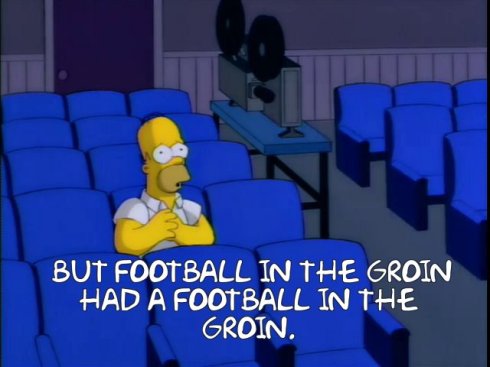
What it does: Requires all bills to be posted online for 72 hours before a vote. Requires the state Legislature to record meetings and post them online.
Why is this a thing? Americans like to be able to keep an eye on legislators, and it is 2016.
What’s in the fine print? There are emergency provisions to allow the legislature to waive the 72 hour waiting period, but only if 2/3 of legislators publicly agree to do so.
Is this partisan? More than I suspected. The California Democratic Party urges a no vote, fearing that 72 hours will give special interests “new powers to block timely legislative action on key issues facing our state.” However, several prominent Democrats like Gavin Newsom have endorsed the proposition in the name of good governance. The Republican Party also urges a yes vote.
Who are the financial backers? Charles T. Munger Jr. has donated around $10 million to the yes side. The California Democratic Party has spent $27 thousand (not a misprint) on the no side.
Are there shady ads? Nothing on TV.
My take: State legislators can be like the minor leagues of government. Someone will make an embarrassing mistake that will go viral, beating football in the groin.
Prop 55: Tax Extension to Fund Education and Healthcare
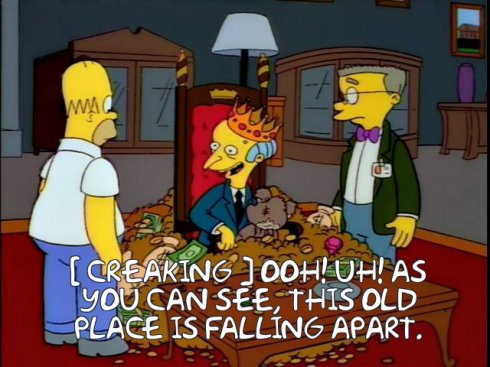
What it does: In 2012 Californians approved a ballot measure to temporarily create new high end marginal tax brackets for people earning at least $250,000. That ballot measure was scheduled to end in 2018. Prop 55 would extend the tax brackets until 2031 and specifies how the revenue should be spent on education and health care.
Why is this a thing? It’s extremely difficult to raise property taxes in California, so the state relies heavily on income and sales taxes. Taxing the income of the rich is a way to provide more money for schools.
What’s in the fine print? The ballot measure maintains the status quo.
Is this partisan? Higher taxes, partisan? You don’t even have to ask: Democrats support and Republicans oppose.
Who are the financial backers? Hospitals and teachers unions say yes. They have raised $57.5 million, more than any other yes campaign and #3 overall in campaign contributions. The no campaign has raised $3000 (not a misprint).
Are there shady ads? Politifact rates the main “Yes of 55” ad mostly false for claiming that a no vote would lead to an instant budget shortfall. Most projections say there would still be a short term surplus. It could still diminish in the long term because California’s revenue stream is notoriously volatile.
My take: I remember covering the massive state budget shortfall of 2003. It would be nice if California didn’t have to rely so much on income tax, but we are stuck. Therefore, higher income taxes for the rich may be the best revenue source remaining.
Prop 56: Cigarette Tax to Fund Healthcare
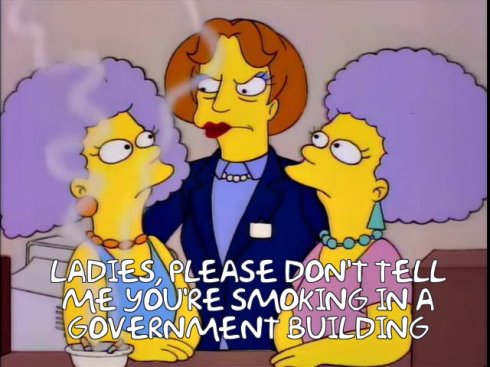
What it does: Put an additional $2 per pack tax on cigarettes. The revenue mainly goes to treatment of tobacco related health conditions, with 13% going to anti-smoking initiatives in the state.
Why is this a thing? Proponents argue raising the sales tax is the best way to reduce smoking rates, particularly among young people. They are pretty up front about saying the tax is a means to an end.
What’s in the fine print? Nothing in the law itself, but remember any law with a blanket per use tax affects poor people a lot more than the rich.
Is this partisan? Higher taxes, partisan? You don’t even have to ask: Democrats support and Republicans oppose.
Who are the financial backers? There are a ton of ballot propositions this year, but Prop 56 is one of the big money ones. 23 percent of all the money raised for ballot propositions is being spent here. Big tobacco has raised $71.3 million for the no campaign. Hospitals are the main yes backers, with around $31 million.
Are there shady ads? Oh yeah. Big tobacco is running ads saying that this tax “cheats schools.” Politifact rates this claim as mostly false. There is a California ballot proposition that requires K-12 schools and community colleges to get a certain minimum percentage of the state’s General Fund. Prop 56 sidesteps this requirement, but this is commonplace in ballot propositions. They are also running a bunch of digital banner ads claiming Prop 56 is a vague tax hike without even mentioning smoking.
My take: I’m allergic to tobacco smoke, so I’m very anti-smoking. However, I also have a strong aversion to regressive taxes. Not sure how I’m voting here.
Prop 57: Criminal Sentences. Parole. Juvenile Criminal Proceedings.
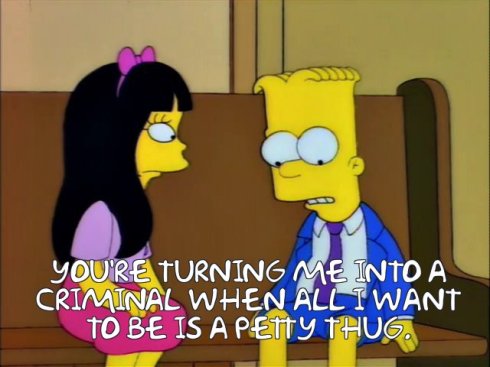
What it does: Confuse people. Seriously. There are two separate laws that are stitched together in one Franken-bill. Most write-ups are bad at separating part A from part B, so let me see if I can help.
- Part A: When people are convicted, there is often a primary offense and some secondary offenses like resisting arrest. If Prop 57 passes, nonviolent offenders will be eligible for parole after serving the full sentence for the primary offense. They can also earn credits for good behavior and other rehabilitation efforts.
- Part B: California currently has a long list of violent crimes where anyone age 14-17 is charged as an adult unless they successfully petition to be tried as a minor. Prop 57 would start by placing these minors in family court and ask a judge whether they should be tried as minors or adults. This should make a higher threshold for trying juveniles as adults.
Why is this a thing? California lost a lawsuit and is under a court order to reduce the number of people in prison. Prop 57 is an attempt to do so by rewarding rehabilitation and keeping minors in the juvenile system with shorter sentences.
What’s in the fine print? Like I said above, this is two separate laws packaged together. The first part (about parole) is getting more attention. “Nonviolent” is a fairly wide range of offenses here.
Is this partisan? There are conservatives who favor criminal justice reform, but Prop 57 falls along traditional party lines. Democrats support and Republicans oppose.
Who are the financial backers? The California Democratic Party is a major backer of the yes side. Governor Brown has made this a personal priority. Los Angeles County Sheriffs have made a last ditch opposition effort.
Are there shady ads? Just about any campaign involving criminal justice seems to have scaremongering about a violent predator. In this case it’s the infamous Brock Turner case. Politifact rates the ad as mostly false, because the state Department of Corrections treats sex offenders as violent criminals with regards to parole even when California law is ambiguous about whether the offense counts as violent.
My take: When I covered California’s budget disaster of 2003, there was a month where the only time leading Democrats and Republicans got in the same room was a fundraiser for the prison guards union. The state built and built prisons but when legislators finally told the prison guards no more, they didn’t change laws that kept people in jail. In 2014 conditions grew so bad that they were deemed cruel and unusual punishment.
Prop 58: English Proficiency. Multilingual Education.
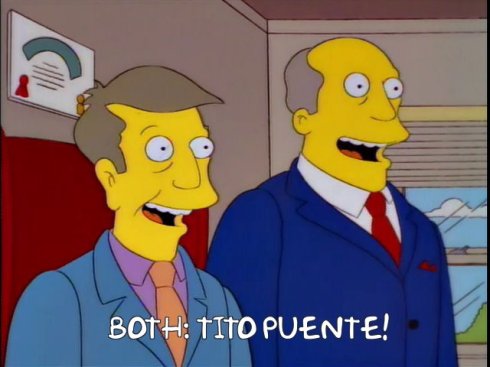
What it does: Repeals a nearly 20 year old ballot proposition mandating English only education. Schools will be allowed to use bilingual programs to help children achieve fluency in both languages. Parents choose whether to enroll kids in the program.
Why is this a thing? Bilingual education issue has broader cultural significance, which is why it’s on the ballot instead of being a technical decision. It takes a new ballot proposition to remove an old one.
What’s in the fine print? A wise acknowledgement that “bilingual” is more than just English & Spanish. (Los Angeles prints ballots and “I voted” stickers in 9 languages.)
Is this partisan? It’s fairly partisan, but not as strong as some other bills. Democrats support the measure. The state Republican party is opposed. However, the Chamber of Commerce and other business groups are urging a yes vote.
Who are the financial backers? The teachers’ union made a few late donations in support. No one has donated to the no campaign.
Are there shady ads? Nope, there’s little ad revenue in this one.
My take: Based on what I learned as a teaching assistant for a linguistic anthropology class, I’m voting yes here.
Prop 59: Corporations. Political Spending.
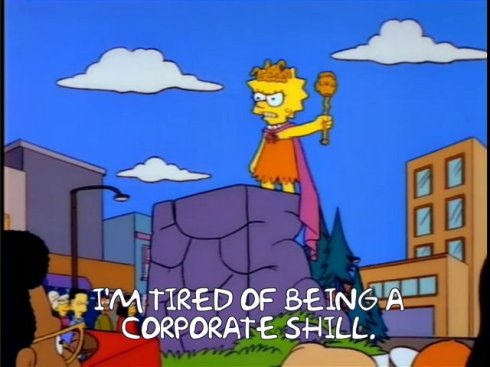
What it does: Tell legislators that we aren’t happy with Citizens United, the Supreme Court decision that invalidated many campaign finance laws. This has no force or legal effect.
Why is this a thing? Symbolism?
What’s in the fine print? Remember this is just advisory.
Is this partisan? Yes. Democrats support and Republicans oppose. This ballot proposition has drawn considerable interest from progressives outside California as part of a way to build a broader movement.
Who are the financial backers? Only $317,604 in total donations, so basically no one.
Are there shady ads? I’m sure there are people on Facebook taking this way too seriously.
My take: There’s no way to get anyone to pay attention to this symbolic proposition with so much else on the ballot.
Prop 60: Adult Films. Condoms
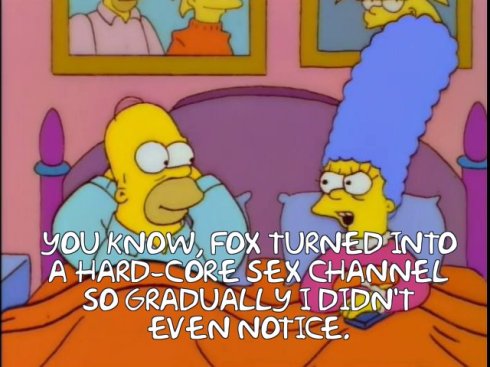
What it does: Requires adult film performers to wear condoms during intercourse. Requires film producers to obtain licenses, pay for workers’ health care screenings.
Why is this a thing? California passed a law requiring condom use in adult films in 1992, but the law is rarely enforced. The ballot proposition is mainly about one activist’s crusade to create new enforcement mechanisms and a bunch of awkward conversations.
What’s in the fine print? Any California resident who witnesses a violation of the law can file a workplace safety complaint and then sue anyone profiting from the work if the complaint is not investigated.
Is this partisan? Surprisingly both the Republican and Democratic state party offices are urging a no vote.
Who are the financial backers? The AIDS Healthcare Foundation is the sole backer for the yes side. The adult film industry is the main backer for the no side.
Are there shady ads? The no campaign is overreaching with ads worrying about a flurry of lawsuits. However, Politifact rated the ads half true because many adult film performers have a financial stake in the production and could be liable to lawsuits if the state investigation does not go forward.
My take: Apparently it is possible to get the Republican Party and LGBT groups on the same side of an issue.
Prop 61: State Prescription Drug Purchases. Pricing Standards.
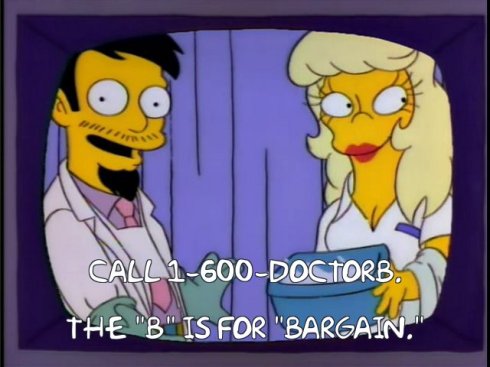
What it does: Prohibits the state from paying more than the US Department of Veterans Affairs for prescription drugs.
Why is this a thing? One reason prescription drugs cost so much is because different states and the federal government can’t negotiate as one large buyer. In theory, passing this law would give the state tremendous bargaining power. But the state then has to go in to a new round of price negotiations.
What’s in the fine print? No one knows what will happen if this passes. Drug companies may increase the rate they charge the VA to technically comply with the law, instead of lowering prices for California.
Is this partisan? Sort of. The no coalition is pretty broad, combining the Republican Party and their traditional allies with the California Medical Association and some LGBT groups. Bernie Sanders appears in pro Prop 61 ads but the state Democratic Party officially takes no position.
Who are the financial backers? Drug companies have spent $108.9 million in opposition. That’s 24.66 percent of all funds raised for ballot propositions. The AIDS Healthcare Foundation is the sole financial backer on the pro side.
Are there shady ads? The no campaign bought national ads during baseball playoff games, so they get a special demerit here. The yes side is relying on Bernie Sanders in a late ad blitz. Sanders says this is great for taxpayers, but Politifact pointed out that this is a prediction and not a fact.
My take: This ballot measure makes me think of someone going all in when playing no limit poker. The ballot measure is a negotiating tactic. It’s a kind of a bluff, but the state can’t walk it back. What happens if pharmaceutical companies call the state’s bluff? I don’t see any scenario where drug companies agree to reduce prices for California, because then every other state will try to pass similar laws. California ballot propositions are notorious for voters approving risky ideas and not realizing the consequences until it’s too late. It takes a certain kind of naïve idealism to imagine this ballot proposition actually working as intended, which is why every newspaper recommends a no vote.
Linked Death Penalty Propositions: 62 and 66
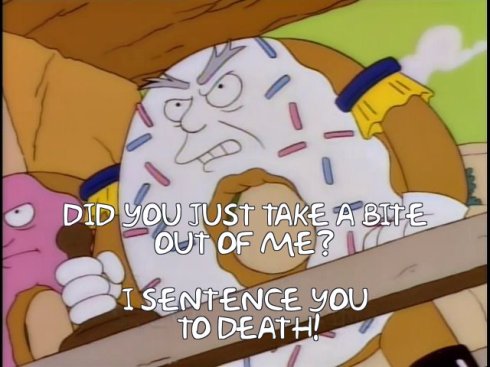
What Prop 62 does: Repeals the death penalty. Everyone currently on death row gets their sentence commuted to life with no parole.
What Prop 66 does: Provides strict timelines and limits for how someone convicted and given the death penalty could appeal their sentence. Allows the state Supreme Court to appoint lawyers to clear a backlog of death penalty cases. Prevents any regulatory board (like the AMA) from revoking the medical license of a doctor who oversees an execution.
Why is this a thing? California reinstituted the death penalty in 1978, but executions have been on hold since a court challenge over the method of lethal injection in 2006. The state has 746 prisoners on death row, more than anywhere else in the Western Hemisphere.
What’s in the fine print of Prop 62? Nothing
What’s in the fine print of Prop 66? Anyone sitting on death row will be required to work a certain number of hours each day until the day they are executed.
Is this partisan? Yes. Democrats support Prop 62 (repealing the death penalty), Republicans support Prop 66 (speeding up the death penalty). Everyone who supports one proposition opposes the other.
Who are the financial backers? Repealing the death penalty doesn’t have a specific organization as sponsor, but it has a number of wealthy CEOs making personal donations. Financial support to speed up the death penalty mainly comes from police unions and district attorneys.
Are there shady ads? The campaign to repeal the death penalty has its shocking but true facts and a big miss.
My take: I am stunned that I haven’t seen Black Lives Matter activists highlighting how it’s the police who financially support maintaining and speeding up the death penalty here in California. Maybe it’s just too hard to get through when people are still focused on Clinton v. Trump. BLM tends to have protests around the holiday season, so there’s plenty of time to use this.
Prop 63: Firearms. Ammunition Sales.
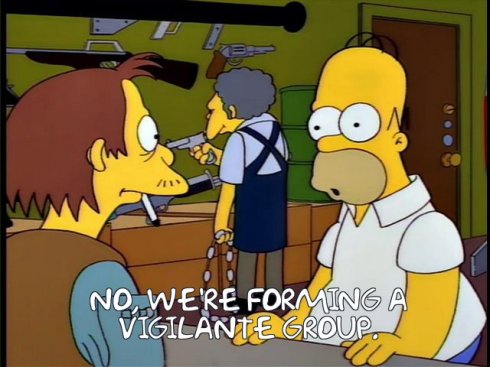
What it does: Requires a background check to buy ammunition. Bans large capacity magazines. Requires all state background checks on guns & ammo to line up with federal background checks. Requires people convicted of serious violent crimes to surrender their guns.
Why is this a thing? It is up to the states to regulate gun ownership. California has over twice as many licensed gun dealers as McDonalds.
What’s in the fine print? The full bill is 15 pages long.
Is this partisan? Yes, although the Democrats on the yes side seem louder than the Republicans on the no side. There are more anti-tax Republicans than pro gun Republicans here.
Who are the financial backers? The Democratic Party is the main supporter, particularly Lieutenant Governor Gavin Newsom. The NRA has only donated $90 thousand to the no campaign (but may be running their own independent no campaign).
Are there shady ads? Opponents have claimed the law would prevent friends from sharing ammo while hunting or at a firing range, which Politifact rated mostly false.
My take: This seems a bit more plausible than Chris Rock’s idea for bullet control.
Prop 64: Marijuana Legalization.
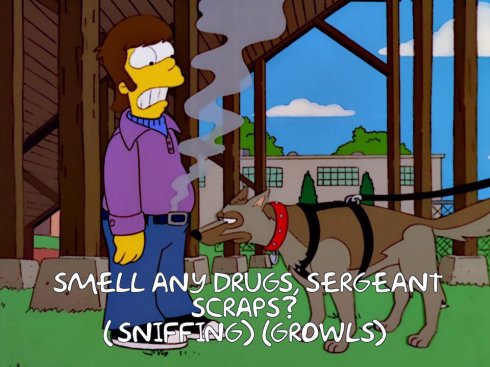
What it does: Legalizes marijuana for personal use, similar to how alcohol is legal but regulated. Establishes a state agency to license commercial growers and inspect the product for quality control. Taxes marijuana.
Why is this a thing? Marijuana regulation has become a de facto state policy issue instead of federal policy.
What’s in the fine print? The full bill is 32 pages long. Anyone who wants to grow their own marijuana better read this closely.
Is this partisan? Yes, with one exception. Democrats generally favor the proposition while Republicans oppose it. Democratic Senator Diane Feinstein opposes it as well.
Who are the financial backers? Supporters are largely funneling their money through vague 501c4 PACs. Opponents are making relatively few financial contributions.
Are there shady ads? I’ve never heard of a judge ruling against a political ad until I looked this up. The no campaign initially claimed Prop 64 would legalize marijuana advertising on prime time TV. The judge said this is false advertising and cannot go in the official ballot arguments. Opponents to Prop 64 were allowed to claim this could lead to prime time ads, although Politifact rates this claim as mostly false. Federal law banning marijuana ads on TV would still apply; it has in Colorado and Washington.
My take: Los Angeles botched its medical marijuana regulations so badly in 2009 that storefronts for both “medical” marijuana and doctors advertising easy access to proscriptions popped up across town. Marijuana was de facto legal on my side of town. I didn’t notice any real change in people showing up to work or school stoned.
Linked Plastic Bag Propositions: 65 and 67
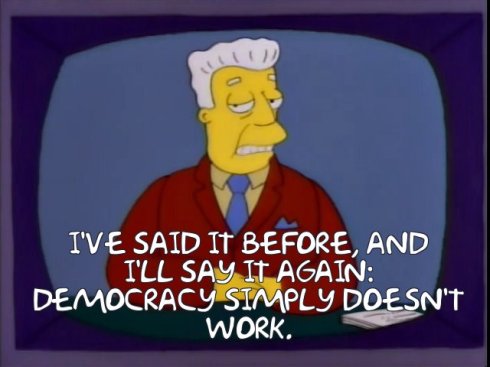
What Prop 65 does: Allows grocery stores to keep using plastic bags. If stores charge people for any type of bag, that money must go to the state wildlife commission.
What Prop 67 does: Bans single use plastic bags at grocery stores. Stores can sell reusable bags. Paper bags would have a minimum charge of 10 cents per bag.
Why is this a thing? Special interests can use the ballot initiative system to block state law. Many cities (like LA) have banned plastic bags. Jerry Brown signed a bill authorizing a statewide ban in 2014 but the plastics industry put that bill on hold. This gave them time to write Prop 65 as a way to undercut the state law.
What’s in the fine print? Prop 65 is largely designed by the plastics industry to limit various local ordinances and a potential statewide law. If both are approved, whichever gets more votes wins.
Is this partisan? Yes, Democrats support the plastic bag ban (67) and Republicans support the alternative measure (65).
Who are the financial backers? Prop 65 is funded entirely by the plastics industry in an attempt to keep the California market. Financial support for Prop 67 comes from grocery stores (who save money from not having to buy plastic bags and offer them for free) and environmentalists.
Are there shady ads? The plastic bag industry is trying to portray Prop 67 as a “bag tax” that doesn’t help the environment. Politifact calls this a half truth. Any fees collected from selling paper bags or reusable bags do not have to go towards environmental causes. However, Politifact says the “tax” label is wrong and misleading. I think Politifact let the no on 67 campaign off easy. People buy reusable bags once and then reuse them – the potential cost to consumers is drastically overestimated.
My take: Los Angeles banned plastic bags a few years ago. At first it was a little annoying because I couldn’t pick up a few groceries on the way home from campus. After a month or so I adjusted. Now it’s a lot easier to have reusable bags. There’s no trash, there’s much less risk of buying too much food and having it go to waste.
November 1st, 2016 at 4:31 pm
[…] on the voters or ballot propositions than be on the Clinton plane. Ideally I’d get to use Simpsons quotes! For all the attention being paid to the Presidential race, there isn’t a whole lot of actual […]